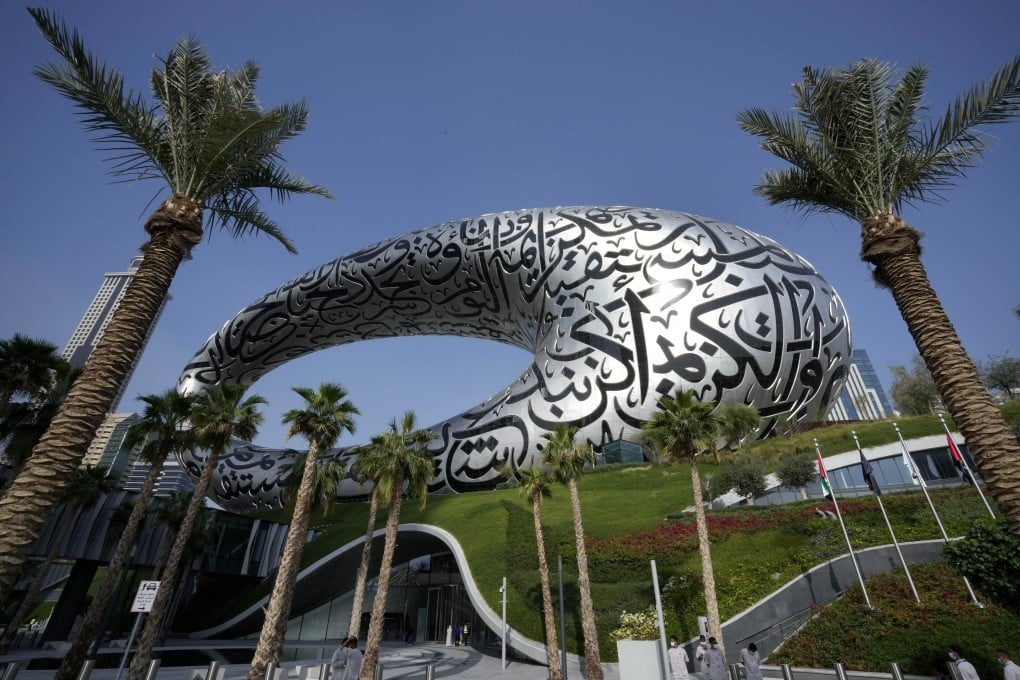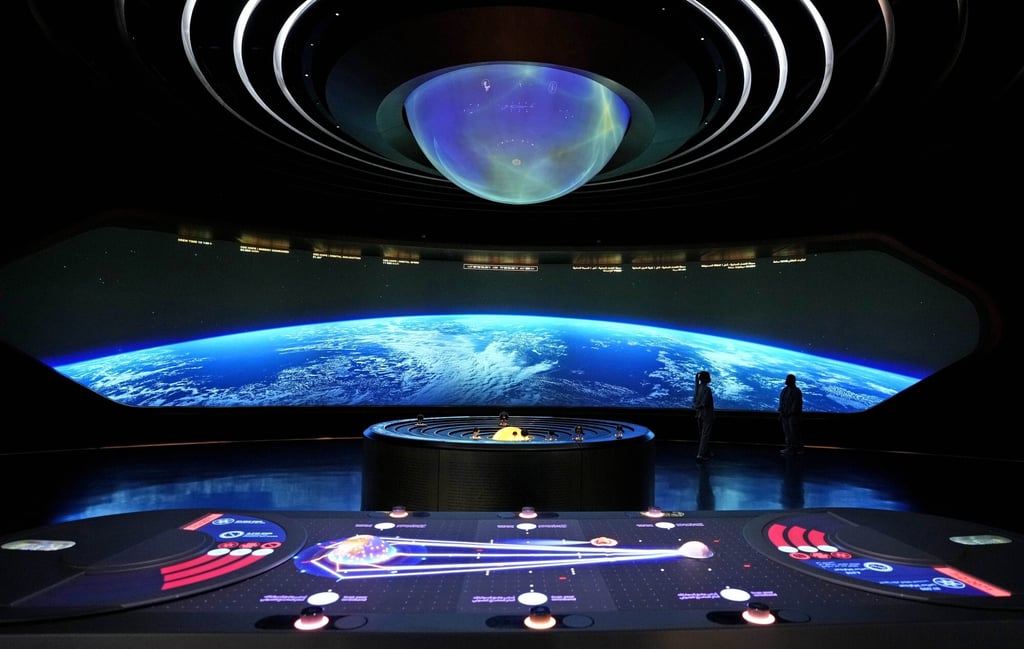Advertisement
Dubai’s Museum of the Future imagines Earth in 50 years as a sustainable, hi-tech planet to live on
- What might the world look like 50 years from now? Dubai’s new museum encourages visitors to embrace a future of flying taxis, wind farms and solar power
- In a place that celebrates luxury and consumerism, it offers a vision of a vibrant biodiverse planet attainable without prohibiting progress or economic growth
Reading Time:4 minutes
Why you can trust SCMP
1

Dubai opened the doors on February 25 to an architecturally stunning building housing the Museum of the Future, a seven-storey structure that envisions a dreamlike world powered by solar energy and the Gulf Arab state’s frenetic quest to develop.
The torus-shaped museum is a design marvel that forgoes support columns, relying instead on a network of diagonal beams. It is enveloped in windows carved by Arabic calligraphy, and adds another eye-popping design element to Dubai’s piercingly modern skyline that shimmers with the world’s tallest tower, the Burj Khalifa.
The Museum of the Future projects Dubai’s ambitions and its desire to be seen as a modern, inclusive city even as its political system remains rooted in hereditary rule and hard limits exist on the types of expression permitted. It is the latest in a stream of feats for Dubai, which is the first country in the Middle East to host the World’s Fair.
Advertisement
The museum envisions what the world could look like 50 years from today. It’s a vision that crystallises the United Arab Emirates’ own 50-year transformation from a pearl-diving backwater to a global interconnected hub fuelled by oil and gas wealth.

“It was an imperative requirement to develop so fast because we needed to catch up with the rest of the world,” said Sarah Al-Amiri, UAE minister of state for advanced technology and chair of the UAE Space Agency. “Before 1971, [we had] no basic road networks, no basic education, electricity network and so on.”
Advertisement
Advertisement
Select Voice
Choose your listening speed
Get through articles 2x faster
1.25x
250 WPM
Slow
Average
Fast
1.25x